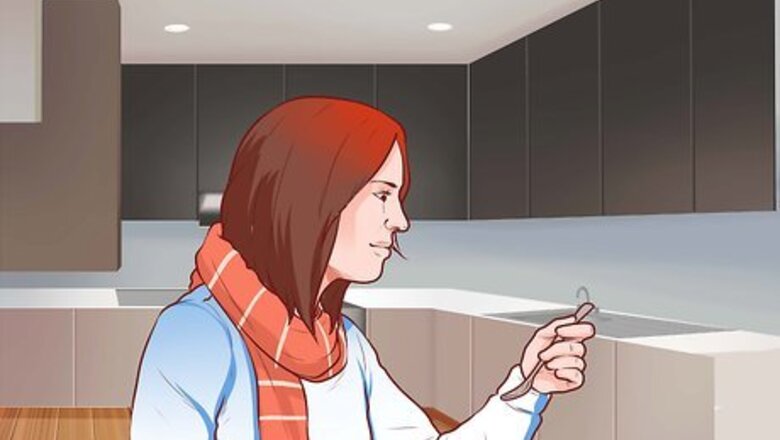
views
Aiding Your Digestion
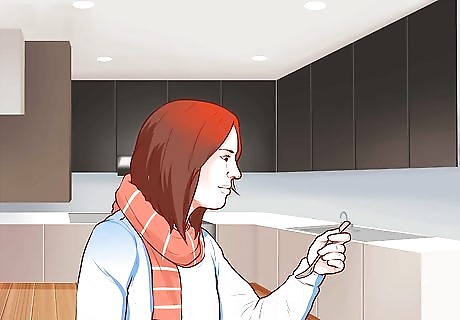
Eat more slowly. Eating slowly and in a relaxed atmosphere will help you digest your food more comfortably, giving your digestive enzymes more time to break down the food. Chewing your food thoroughly not only chops it down into more easily digestible chunks, but the more time it is in your mouth the more contact it will have with the saliva which begins your body’s digestive work. Eat at a more sedate pace, and make meals a social occasion and opportunity to chat and catch up with family and friends. If you are talking, you will eat more slowly and your digestion will be smoother and easier.
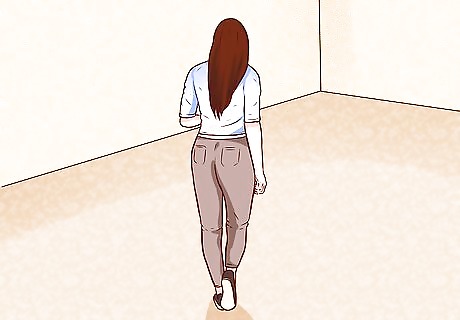
Take a brief walk. After a big meal you will probably feel like having a lie down and maybe a nap, but the evidence suggests that taking a short walk for fifteen or twenty minutes is a great way to aid digestion. After heavy eating your blood sugar will generally rise and then fall, and going for a walk after eating can help you stabilise your blood sugar levels. A walk a little after eating can help you clear the glucose from your blood and get you feeling back to normal.
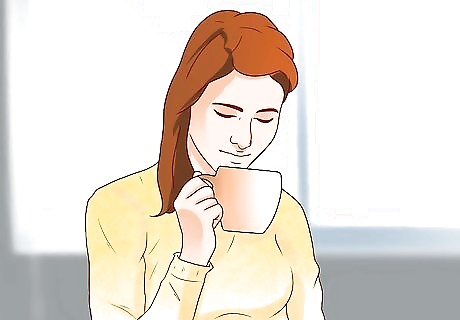
Sip some herbal tea. Various herbal teas can be good digestive aids. Ginger tea is an especially good choice. You can make it from a ginger tea bag, or by placing a few slices of ginger root in a cup of boiling water. Some other teas to try that promote good digestion include chamomile, peppermint, and cinnamon. You can add a few squeezes of lemon and shakes of cayenne pepper to ginger tea to make a concoction that will help speed up your metabolism, and tackle your bloated feeling. The cayenne pepper can help quicken your metabolism, while the lemon helps you feel less bloated.
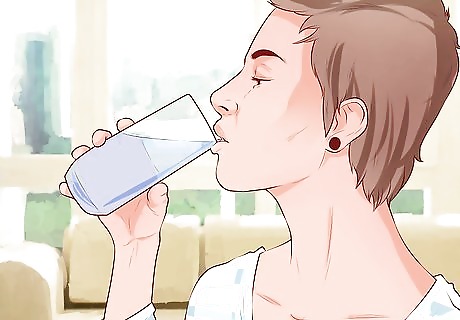
Drink some water. Drinking water after a meal can help you feel a bit refreshed, but it can also help your digestion. The water can aid the passage of the food through your digestive system. Drink a glass around twenty minutes after you have finished eating. Consider drinking a cup of hot water rather than cold water.
Resting and Recuperating
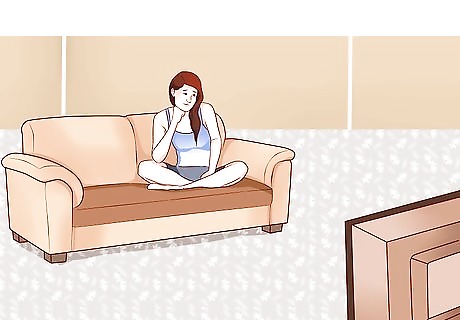
Try to relax. After eating a large meal try not to give yourself a hard time. It’s very common to overeat occasionally, especially at big occasions such as holidays and birthdays. Try to relax and allow your body to get on with digesting the food. Follow a quick walk and a cup of ginger tea with some time spent just relaxing on the sofa. If you need to distract yourself, try reading or watching a movie.

Do some stretches. One way to try to relax after a big meal and stabilise your system is to perform some simple yoga stretches. Some gentle stretching can help calm your body and ease digestion. Start by sitting on the floor in with your legs crossed, and then slowly turn to your left and hold. Take five deep breaths and then turn your body back to the centre. Twist to your right, hold, and take five deep breaths. Do this a few times, but don’t push too hard. Keep the movements slow and controlled and concentrate on your breathing.
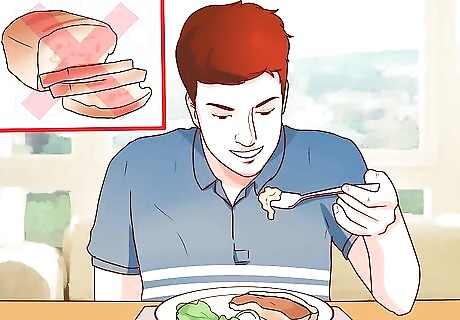
Cut out carbohydrates from your next meal. If you have eaten a large meal that contained a significant amount of carbohydrates, you can help avoid storing too much of that as fat, but cutting the carbs out of your next meal. For example, if you have a big meal in the evening, have a carbohydrate-free breakfast in the morning. Go for some fruit with yoghurt rather than bread or breakfast cereal.
Determining Whether Your Overeating is a Problem

Evaluate whether you binge eat regularly. Occasional binge eating is normal and most people eat too much every now and again, but if you find you are binge eating regularly you may be damaging your health. If you feel compelled to binge eat, you may have an eating disorder which can be diagnosed and treated. The characteristics and symptoms of Binge Eating Disorder include: Feeling powerless to stop eating, or out of control of your eating. Frequent episodes of uncontrollable eating. Feeling very distressed or upset during or after binge eating. No regular attempts to vomit after eating, as occurs in those who suffer from bulimia.
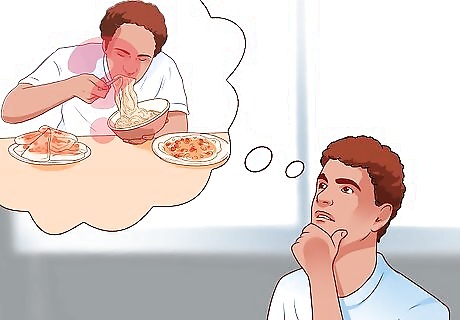
Consider the causes of Binge Eating Disorder. The exact causes of BED are unknown, but there are thought to be a number of potential contributory factors. It is thought that those who suffer from BED are often depressed, or have been depressed in the past. People struggling with their emotions sometimes binge eat, as do some people who are dieting, or skipping meals. There is also thought to be biological factor. The disorder can often appear in several members of the same family, and there may be a genetic influence.

Seek help if you suspect you may suffer from BED. Lots of people overeat, and just because you do this doesn’t mean that you have an eating disorder. If you binge regularly or excessively, however, you should visit your doctor. It is especially important to do this if your eating is making you feel depressed, or impacting your physical or mental health. Your doctor will ask you about your eating habits and your general wellbeing. A doctor can make a diagnosis and may refer to a counsellor, psychiatrist or psychologist. You may also work with a nutritionist who helps you devise a meal plan. The underlying causes of BED may also be treated with SSRIs or anticonvulsant medications. Sometimes, bariatric surgery (such as gastric bypass surgery) can sometimes be helpful for those with BED.











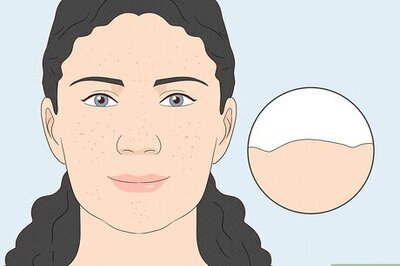
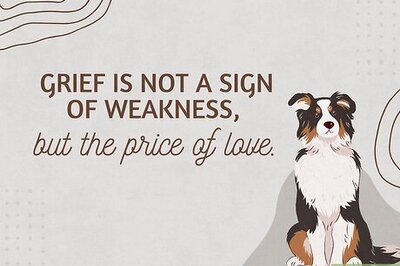







Comments
0 comment